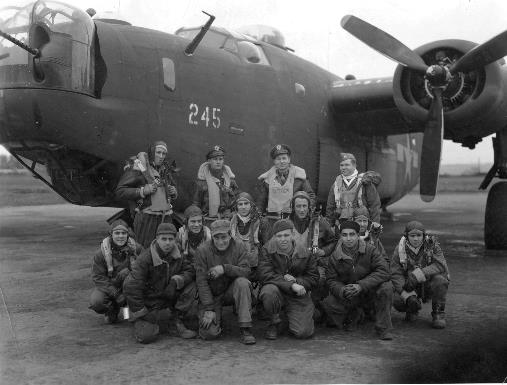“Party leaders and thinkers should take note: It’s easier for a base to hire or develop a flashy new establishment than it is for an establishment to find itself a new base.”Have you ever read about what is going on in some other country and then shaken your head and wondered to yourself, what kind of crazy people live in that place?
—Peggy Noonan, in her Wall Street Journal column on March 4
That has been happening to me for a while now, but the thing is that the country in question is mine.
I really don’t mean to be that annoying guy who moves abroad and then starts looking down on all the people who didn’t move abroad with him. It’s just that there’s something disorienting about feeling like the place you came from has been going through major changes without you. And it’s not that I have been cut off. When I went to school for a year in France at the age of 20, then I was cut off. Back then my only contact with home was through letters (my mom was a loyal correspondent but hardly anyone else ever wrote), a student subscription to Time magazine and the rare splurge on a copy of the International Herald Tribune (now the International New York Times) plus whatever I could glean from the French media. Phone calls rarely happened because they were extremely expensive and, at that point, things like email, the world web and social media were but vague science fiction concepts.
Needless to say, none of that is true anymore. Now I live in the illusion that I am immersed in North American culture and information. Because I now live in the future, I can potentially watch nearly any TV show or hear any news broadcast or read any newspaper or magazine in the whole world. Because of time zone differences, I sometimes even know about news in my home town before the people living there do. But being exposed to media from a place is not at all the same as being and living in that place. This is because, while the media throw light on reality, they also distort reality. I sometimes find myself assuming that people in, say, Seattle are completely consumed with some issue because I have read about it—only to get a sudden reality check when I actually communicate with people in Seattle and find out that thing is not on their radar at all.
Never before, however, have the media turned out to be so completely useless and misleading as in the case of the Donald Trump presidential candidacy.
Because I make a point to read opinions from various points of the political spectrum, I had myself deluded that I have a pretty full understanding of what is going on in U.S. politics. Not even close. And Trump was the tip-off. When it comes to most controversial movements or people, there are always commentators for and against it. To get a fuller understanding, you just read opinions from both sides, right? But when it came to Trump’s candidacy, I realized that no one I was reading supported him. Moreover, the so-called political experts kept saying—and are still staying—that he has peaked, that he can’t go much further, that his moment is nearly over. And yet he keeps winning primary elections hand over fist and seems all but certain to get the GOP nomination. But don’t worry, because the same geniuses who repeatedly told us he could never get the nomination are now telling us he can never win the presidency.
This all amounts to a pretty good indication that there are an awful lot of people out there whose thinking is not be represented by any of the numerous and diverse (or so I thought) writers I was following. Despite all my rigorous efforts at scanning the political horizon, the Trumpistas had managed to sneak up on me. How did that happen?
Many of us, led by the media, tend to think of our country as divided mainly into two camps. Either you are “liberal” or “conservative” or, alternatively, you are part of a mushy middle group that doesn’t pay much attention and/or is prone to move a bit to one side of the center or the other. Basic common sense, if we think about it, will tell us that the breakdown in sociopolitical views is a whole lot more complicated than that. We only (lazily) think of two major ways of seeing politics because we have a rigid two-party system, so media coverage in the U.S. gets funneled into an either-or template. There are strong institutional reasons why 163 years have passed since the last time a politician who was neither Democrat nor Republican occupied the White House. When a different way of thinking begins to spread, it can only get noticed by the media if it makes a serious attempt at co-opting one of the two major parties. And something is now very close to taking over the Republican party. Think of the major American political parties as the only two buses in an entire city, and the only way for you and your friends to get where you want to go is to take over a bus from someone who isn’t currently driving it anywhere most people want to go. GOP establishment, your bus is about to be hijacked.
Journalists who insist on referring to Trump supporters as a “wing” of the Republican Party or “the GOP base” are missing the point because they cannot see outside of the two-party prism. An awful lot of those Trump people have not supported either major party in years. More current or former Democrats than people seem to think are being drawn in. This is something new that is happening. You cannot explain Trump by matching his stated positions to public opinion. His stated positions are all over the place and self-contradictory. People are not voting for him because of where he stands on this or that. They are voting for him because he is the only candidate in this election who seems likely to actually make a major change. What change? Any change. (Sorry, Bernie, this is more about visceral emotion and personality than actual ideas.) Anything, say the Trumpistas, has to be better than the way things are headed now.
So if the media are useless at understanding the Trump thing, where to turn? Camille Paglia, writing on Salon.com seems to have some kind of handle on it, and The Wall Street Journal’s James Taranto at least can look at the phenomenon analytically. Everyone else, on both left and right, seems to be driven insane by Trump and cannot see him objectively. There is a major notable exception, though. The one commentator who seems to have sussed him out and even predicted his future moves and success is an unlikely one. It is Scott Adams, creator of the brilliant workplace comic strip Dilbert, who writes frequently about Trump on his blog.
It is not always easy to tell when Adams is being serious or when his tongue is in his cheek. His posts often read like support for Trump, yet he insists that he actually disagrees with The Donald on most issues and is only praising his phenomenal persuasion techniques. Basically, Adams’s point is that Trump is a genius at manipulative marketing and that explains his past, present and future success. He seems convinced that Trump is likely to become president.
That’s really hard for me to get my head around. Lately I prefer to occupy my brain by pondering what will happen in ten or twenty years when all these young Bernie Sanders supporters, who think socialism is a great idea, become dominant in American politics.

